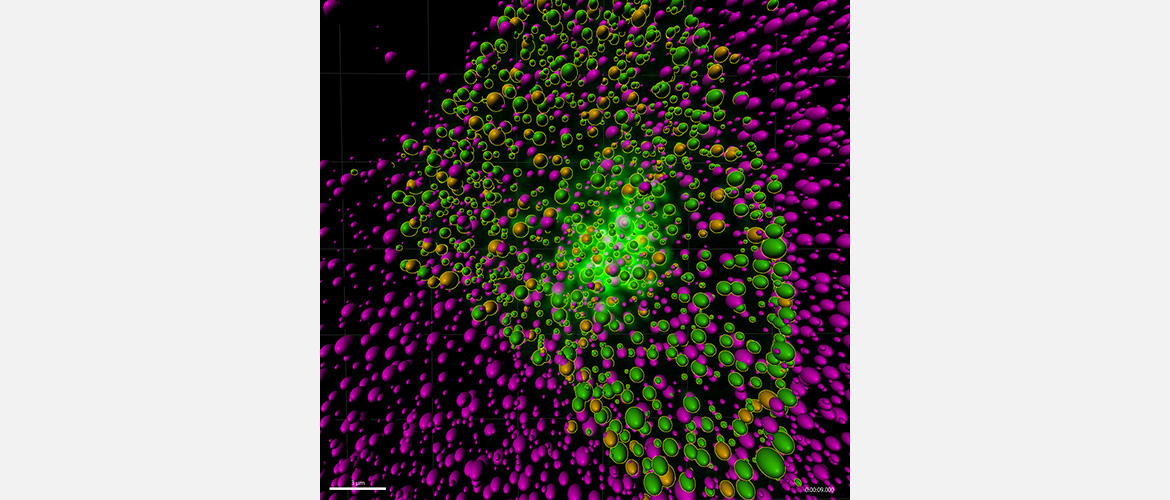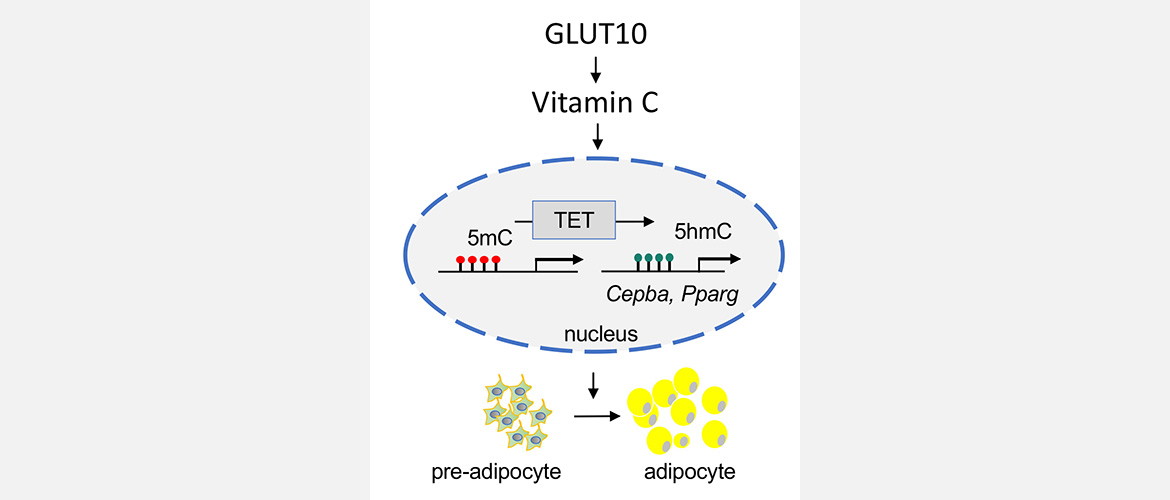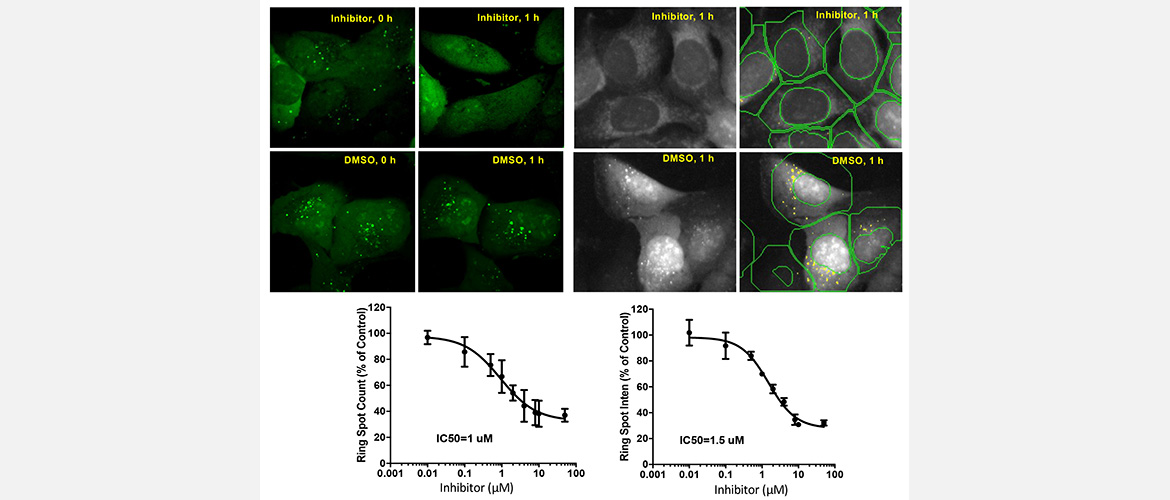Yi-Ching Lee's Lab
-

- SpecialtyHuman Genetic Diseases, Developmental Biology
- E-mailyiching@gate.sinica.edu.tw
- Tel02-2787-1550
- LabR502/ICOB



About the Lee lab
The development and progression of complex diseases and even rare diseases are highly affected by complex interactions between genetic and environmental (including lifestyle) factors. We aim to delineate the genetic and environmental factors and their interactions contributing to an increased risk and progression of genetic diseases. Understanding the pathogenesis and the interplay between gene-environment interactions of genetic disease are important steps for personalized medicine and for developing optimal approaches for preventing or delaying the onset of such disorders.
Our strategies
Studying gene-environment interactions of genetic diseases using family- and population-based designs remains extremely challenging. We tackle the challenge starting from characterization of disease-causing genes and pathogenic pathways of rare diseases, followed by stratification of environmental modifiers of the pathogenesis pathways and their effects on disease progression of related complex diseases.
Current projects in the lab:
We currently focused on connective tissue-related diseases, as many age-related common diseases are associated with connective tissue deterioration, including: cardiovascular diseases, type II diabetes, bone and cartilage degeneration, and cancers. Furthermore, both genetic and environmental factors strongly influence the risk for developing these diseases.
1. Study the gene function and pathogenesis of a rare connective tissue disorder. Arterial tortuosity syndrome (ATS) is a rare connective tissue disorder caused by loss of function mutations in the gene encoding glucose transporter 10 (GLUT10). Many phenotypes observed in ATS patients are similar and overlapping with aging-related connective tissue disorders. We delineate GLUT10 function and the connective tissue-related pathogenesis pathways using mouse model and cultured cells.
2. Study the gene-environment interactions affecting the development of ATS and related connective tissue disorders. We will delineate the novel aspects and interactions between the function and pathogenesis pathways of GLUT10 with age, diet or microenvironmental changes related to susceptibility and outcomes in cardiovascular function, metabolism, connective tissue maintenance, and cancer progression using moue models and further validate in patients with ATS or related common connective tissue disorders.
3. Develop novel therapeutic strategies to target overactivated FGFR3 in the rare disease, achondroplasia (ACH), as well as other FGFR3-related skeletal dysplasias and cancers. We have established a cell-based screening system and ACH and FGFR3 overactivated cancer mouse models to identified potential treatment strategies for FGFR3 overactivated diseases.
We also actively participate in collaborative studies to identify the disease-associated genes, determine the disease pathogenesis, and develop potential diagnostic and preventive strategies. Hope our studies will develop optimal approaches for preventing or delaying the onset of such disorders and bring a step forward to personalized medicine.
| Name | Job Title | Telephone | Remark | |
|---|---|---|---|---|
| Yi-Ching Lee | Associate Research Fellow | 02-27871550 | yiching@gate.sinica.edu.tw | |
| Yun-Wen Lin | Ph.D. Student | 02-27871549 | -- | |
| Anu Chirackal Jose | Ph.D. Student | 02-27871549 | -- | |
| Abhishek Negi | Ph.D. Student | 02-27871549 | -- | |
| Thu-Trang Nguyen | Research Assistant | 02-27871549 | -- |
*: Corresponding author
#: Equal contribution
1. Lin YW, Kao HJ, Chen WT, Kao CF, Wu JY, Chen YT, Lee YC* (2023) Cell-based screen identifies porphyrins as FGFR3 activity inhibitors with therapeutic potential for achondroplasia and cancer. JCI Insight 8 (22). doi:10.1172/jci.insight.171257
2. Jiang CL, Tsao CY, Lee YC* (2022) Vitamin C attenuates predisposition to high-fat diet-induced metabolic dysregulation in GLUT10-deficient mouse model. Genes Nutr 17 (1):10. doi:10.1186/s12263-022-00713-y
3. Wagner BM, Robinson JW, Lin YW, Lee YC, Kaci N, Legeai-Mallet L, Potter LR (2021) Prevention of guanylyl cyclase-B dephosphorylation rescues achondroplastic dwarfism. JCI Insight 6 (9). doi:10.1172/jci.insight.147832
4. Tseng TL, Wang YT, Tsao CY, Ke YT, Lee YC, Hsu HJ, Poss KD, Chen CH (2021) The RNA helicase Ddx52 functions as a growth switch in juvenile zebrafish. Development 148 (15). doi:10.1242/dev.199578
5. Johnson TA, Mashimo Y, Wu JY, Yoon D, Hata A, Kubo M, Takahashi A, Tsunoda T, Ozaki K, Tanaka T, Ito K, Suzuki H, Hamada H, Kobayashi T, Hara T, Chen CH, Lee YC, et al., Korean Kawasaki Disease Genetics Consortium TKDGCTPIDAJKDGC, Lee JK, Chen YT, Onouchi Y (2021) Association of an IGHV3-66 gene variant with Kawasaki disease. J Hum Genet 66 (5):475-489. doi:10.1038/s10038-020-00864-z
6. Jiang CL, Jen WP, Tsao CY, Chang LC, Chen CH, Lee YC* (2020) Glucose transporter 10 modulates adipogenesis via an ascorbic acid-mediated pathway to protect mice against diet-induced metabolic dysregulation. PLoS Genet 16 (5):e1008823. doi:10.1371/journal.pgen.1008823
7. Jen WP, Chen HM, Lin YS, Chern Y, Lee YC *(2020) Twist1 Plays an Anti-apoptotic Role in Mutant Huntingtin Expression Striatal Progenitor Cells. Mol Neurobiol 57 (3):1688-1703. doi:10.1007/s12035-019-01836-x
8. Ko TM, Chang JS, Chen SP, Liu YM, Chang CJ, Tsai FJ, Lee YC, Chen CH, Chen YT, Wu JY (2019) Genome-wide transcriptome analysis to further understand neutrophil activation and lncRNA transcript profiles in Kawasaki disease. Sci Rep 9 (1):328. doi:10.1038/s41598-018-36520-y
9. Syu YW, Lai HW, Jiang CL, Tsai HY, Lin CC, Lee YC* (2018) GLUT10 maintains the integrity of major arteries through regulation of redox homeostasis and mitochondrial function. Hum Mol Genet 27 (2):307-321. doi:10.1093/hmg/ddx401
10. Lenka G, Tsai MH, Lin HC, Hsiao JH, Lee YC, Lu TP, Lee JM, Hsu CP, Lai LC, Chuang EY (2017) Identification of Methylation-Driven, Differentially Expressed STXBP6 as a Novel Biomarker in Lung Adenocarcinoma. Sci Rep 7:42573. doi:10.1038/srep42573
11. Lee YC*, Song IW, Pai YJ, Chen SD, Chen YT (2017) Knock-in human FGFR3 achondroplasia mutation as a mouse model for human skeletal dysplasia. Sci Rep 7:43220. doi:10.1038/srep43220
12. Ko TM, Kuo HC, Chang JS, Chen SP, Liu YM, Chen HW, Tsai FJ, Lee YC, Chen CH, Wu JY, Chen YT (2015) CXCL10/IP-10 is a biomarker and mediator for Kawasaki disease. Circ Res 116 (5):876-883. doi:10.1161/CIRCRESAHA.116.305834
13. Lin YC, Lee YC, Li LH, Cheng CJ, Yang RB (2014) Tumor suppressor SCUBE2 inhibits breast-cancer cell migration and invasion through the reversal of epithelial-mesenchymal transition. J Cell Sci 127 (Pt 1):85-100. doi:10.1242/jcs.132779
14. Chen CH, Lee CS, Lee MT, Ouyang WC, Chen CC, Chong MY, Wu JY, Tan HK, Lee YC, et., al., Chen YT, Cheng AT, Taiwan Bipolar C (2014) Variant GADL1 and response to lithium therapy in bipolar I disorder. N Engl J Med 370 (2):119-128. doi:10.1056/NEJMoa1212444
15. Chang CJ, Kuo HC, Chang JS, Lee JK, Tsai FJ, Khor CC, Chang LC, Chen SP, Ko TM, Liu YM, Chen YJ, Hong YM, Jang GY, Hibberd ML, Kuijpers T, Burgner D, Levin M, Burns JC, Davila S, International Kawasaki Disease Genetics C, Korean Kawasaki Disease Genetics C, Taiwan Kawasaki Disease Genetics C, Chen YT, Chen CH, Wu JY, Lee YC*(2013) Replication and meta-analysis of GWAS identified susceptibility loci in Kawasaki disease confirm the importance of B lymphoid tyrosine kinase (BLK) in disease susceptibility. PLoS One 8 (8):e72037. doi:10.1371/journal.pone.0072037
16. Lee YC, Kuo HC, Chang JS, Chang LY, Huang LM, Chen MR, Liang CD, Chi H, Huang FY, Lee ML, Huang YC, Hwang B, Chiu NC, Hwang KP, Lee PC, Chang LC, Liu YM, Chen YJ, Chen CH, Taiwan Pediatric IDA, Chen YT, Tsai FJ, Wu JY (2012) Two new susceptibility loci for Kawasaki disease identified through genome-wide association analysis. Nat Genet 44 (5):522-525. doi:10.1038/ng.2227
17. Tsai FJ#, Lee YC#, Chang JS, Huang LM, Huang FY, Chiu NC, Chen MR, Chi H, Lee YJ, Chang LC, Liu YM, Wang HH, Chen CH, Chen YT, Wu JY (2011) Identification of novel susceptibility Loci for kawasaki disease in a Han chinese population by a genome-wide association study. PLoS One 6 (2):e16853. doi:10.1371/journal.pone.0016853
18. Lee YC, Chang CJ, Bali D, Chen YT, Yan YT (2011) Glycogen-branching enzyme deficiency leads to abnormal cardiac development: novel insights into glycogen storage disease IV. Hum Mol Genet 20 (3):455-465. doi:10.1093/hmg/ddq492
19. Khor CC#, Davila S#, Breunis WB#, Lee YC#, Set al., Hong Kong-Shanghai Kawasaki Disease Genetics C, Korean Kawasaki Disease Genetics C, Taiwan Kawasaki Disease Genetics C, International Kawasaki Disease Genetics C, Consortium USKDG, Blue Mountains Eye S (2011) Genome-wide association study identifies FCGR2A as a susceptibility locus for Kawasaki disease. Nat Genet 43 (12):1241-1246. doi:10.1038/ng.981
20. Cheng PY, Lin YP, Chen YL, Lee YC, Tai CC, Wang YT, Chen YJ, Kao CF, Yu J (2011) Interplay between SIN3A and STAT3 mediates chromatin conformational changes and GFAP expression during cellular differentiation. PLoS One 6 (7):e22018. doi:10.1371/journal.pone.0022018
21. Saha A, Lee YC, Zhang Z, Chandra G, Su SB, Mukherjee AB (2010) Lack of an endogenous anti-inflammatory protein in mice enhances colonization of B16F10 melanoma cells in the lungs. J Biol Chem 285 (14):10822-10831. doi:10.1074/jbc.M109.083550
22. Lee YC, Huang HY, Chang CJ, Cheng CH, Chen YT (2010) Mitochondrial GLUT10 facilitates dehydroascorbic acid import and protects cells against oxidative stress: mechanistic insight into arterial tortuosity syndrome. Hum Mol Genet 19 (19):3721-3733. doi:10.1093/hmg/ddq286
23. Cheng CH, Kikuchi T, Chen YH, Sabbagha NG, Lee YC, Pan HJ, Chang C, Chen YT (2009) Mutations in the SLC2A10 gene cause arterial abnormalities in mice. Cardiovasc Res 81 (2):381-388. doi:10.1093/cvr/cvn319
24. Saha A, Kim SJ, Zhang Z, Lee YC, Sarkar C, Tsai PC, Mukherjee AB (2008) RAGE signaling contributes to neuroinflammation in infantile neuronal ceroid lipofuscinosis. FEBS Lett 582 (27):3823-3831. doi:10.1016/j.febslet.2008.10.015
25. Kim SJ, Zhang Z, Sarkar C, Tsai PC, Lee YC, Dye L, Mukherjee AB (2008) Palmitoyl protein thioesterase-1 deficiency impairs synaptic vesicle recycling at nerve terminals, contributing to neuropathology in humans and mice. J Clin Invest 118 (9):3075-3086. doi:10.1172/JCI33482
26. Zhang Z#, Lee YC#, Kim SJ, Choi MS, Tsai PC, Saha A, Wei H, Xu Y, Xiao YJ, Zhang P, Heffer A, Mukherjee AB (2007) Production of lysophosphatidylcholine by cPLA2 in the brain of mice lacking PPT1 is a signal for phagocyte infiltration. Hum Mol Genet 16 (7):837-847. doi:10.1093/hmg/ddm029
27. Zhang Z#, Lee YC#, Kim SJ, Choi MS, Tsai PC, Xu Y, Xiao YJ, Zhang P, Heffer A, Mukherjee AB (2006) Palmitoyl-protein thioesterase-1 deficiency mediates the activation of the unfolded protein response and neuronal apoptosis in INCL. Hum Mol Genet 15 (2):337-346. doi:10.1093/hmg/ddi451
28. Zhang Z, Kim SJ, Chowdhury B, Wang J, Lee YC, Tsai PC, Choi M, Mukherjee AB (2006) Interaction of uteroglobin with lipocalin-1 receptor suppresses cancer cell motility and invasion. Gene 369:66-71. doi:10.1016/j.gene.2005.10.027
29. Ray R, Zhang Z, Lee YC, Gao JL, Mukherjee AB (2006) Uteroglobin suppresses allergen-induced TH2 differentiation by down-regulating the expression of serum amyloid A and SOCS-3 genes. FEBS Lett 580 (25):6022-6026. doi:10.1016/j.febslet.2006.09.059
30. Lee YC, Zhang Z, Mukherjee AB (2006) Mice lacking uteroglobin are highly susceptible to developing pulmonary fibrosis. FEBS Lett 580 (18):4515-4520. doi:10.1016/j.febslet.2006.07.031
31. Kim SJ, Zhang Z, Lee YC, Mukherjee AB (2006) Palmitoyl-protein thioesterase-1 deficiency leads to the activation of caspase-9 and contributes to rapid neurodegeneration in INCL. Hum Mol Genet 15 (10):1580-1586. doi:10.1093/hmg/ddl078
32. Kim SJ, Zhang Z, Hitomi E, Lee YC, Mukherjee AB (2006) Endoplasmic reticulum stress-induced caspase-4 activation mediates apoptosis and neurodegeneration in INCL. Hum Mol Genet 15 (11):1826-1834. doi:10.1093/hmg/ddl105
33. Lee YC, Lu, C.A., Casaretto, J.a., and Yu, S.M., (2003) An ABA-responsive bZIP protein, OsBZ8, mediates sugar repression of α-amylase gene expression. Physiologia Plantarum 119 (1):78-86
34. Yu SM#, Lee YC#, Fang SC, Chan MT, Hwa SF, Liu LF (1996) Sugars act as signal molecules and osmotica to regulate the expression of alpha-amylase genes and metabolic activities in germinating cereal grains. Plant Mol Biol 30 (6):1277-1289. doi:10.1007/bf00019558

